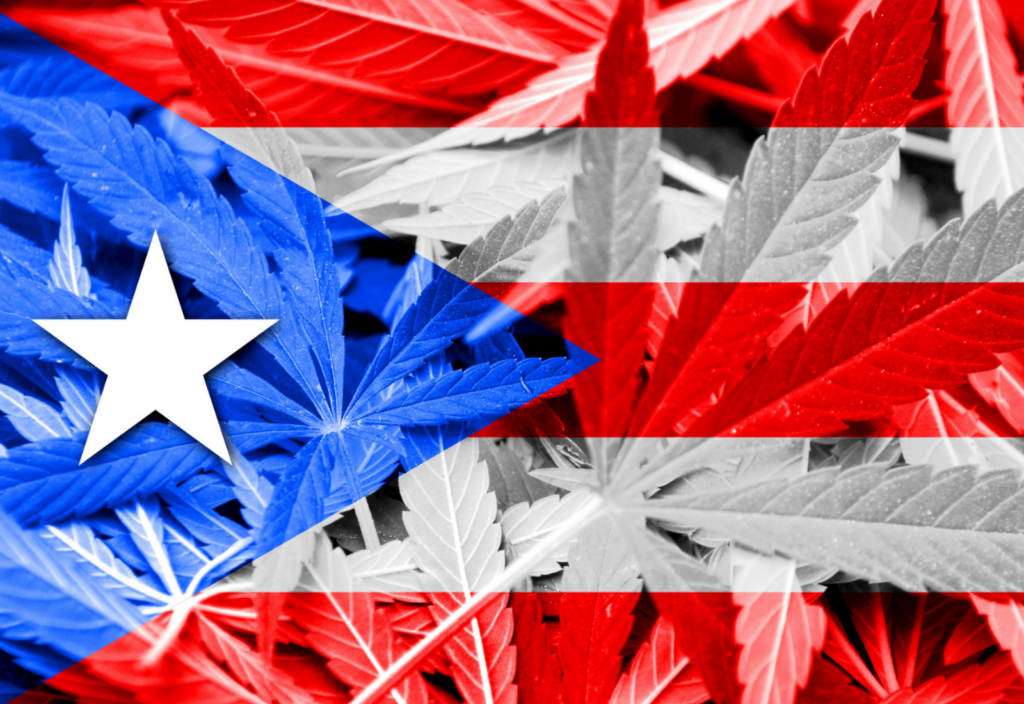During a recent interview, Puerto Rico Sen. Joanne Rodríguez Veve (of the conservative Proyecto Dignidad) expressed her misgivings about the legalization of adult-use cannabis. As I have made clear before on this blog, Puerto Rico’s failure to fully legalize cannabis strikes me as dreadfully self-defeating. At a time when the island is in dire need of jobs and revenue, the economic opportunities presented by the cannabis industry are being swatted away by most of its governing class—for no good reason. Struck with disbelief, I am always curious to see how cannabis detractors justify their opposition to further legalization.
Rodríguez Veve is generally a sharp exponent of her ideas, but she was on shaky ground when discussing cannabis. (PSA: THC is not cannabis’ “party” component; it is an integral part of medical cannabis, with applications that help cancer and AIDS patients.) To her credit, though, the senator recognized that she needed to deepen her knowledge when it came to cannabis. She also mentioned that she plans to discuss a bill that has been introduced to legalize adult-use cannabis in Puerto Rico with its sponsor.
Yet when the interviewer suggested that Rodríguez Veve was “open to change,” the senator countered, “honestly … I do not see myself taking a position in support of marijuana legalization.” The senator powerfully advocates for her own ideas, but is clearly skeptical about the ability of others to sway her, at least on cannabis policy.
Rodríguez Veve used the term despenalización (decriminalization), but I purposely translated it as “legalization” to avoid confusion: The senator is open to decriminalizing cannabis use, which is what is commonly understood as decriminalization in the United States. As calls for legalization grow around the world, support for decriminalization-only has become a popular hedge for politicians, who presumably figure they will come off as having a sensible, middle-of-the-road position. No one should be in jail for smoking marijuana—but neither should there be stores openly selling it.
Subject to scrutiny, however, decriminalization-only is a vacuous and counterproductive approach. It does little to reduce cannabis consumption, but deprives society of tax revenues and job creation associated with said consumption. Moreover, a lack of legal avenues to procure cannabis keeps profits in the wrong hands, and prevents the state from engaging in constructive regulation geared to promote health and safety (such as ensuring cannabis products are properly labeled).
Rodríguez Veve stressed that it was important to study the experiences of places where adult-use cannabis has been legalized. Well, with more than a dozen U.S. states (and all of Canada) having legalized adult-use cannabis since 2012, there are plenty of examples to study. If Puerto Rican cannabis skeptics are going to deprive the island of growth opportunities, then they should make their case by pointing to the actual experiences of places like Washington State and California—not some dystopia that exists only in their imaginations.
And if the economic dimensions do not move Rodríguez Veve, she should consider if opposition to legalizing adult-use cannabis can be squared with her ardent support for personal freedom. The senator has energetically argued against what she perceives as unwarranted government intrusions into the lives of citizens, including vaccine mandates. Telling adults that they cannot use cannabis, even in the privacy of their homes, is a textbook example of the nanny state in action.
Rodríguez Veve’s comments are a timely reminder to proponents of legalization, in Puerto Rico and elsewhere, that there is still much work to be done educating key audiences on the facts about cannabis, highlighting the benefits of a legal industry, as backed up by the real-life examples. At the same time, policymakers should proactively avail themselves of the information necessary to think critically about legalization, at least if they want to take a stance on the issue.
























